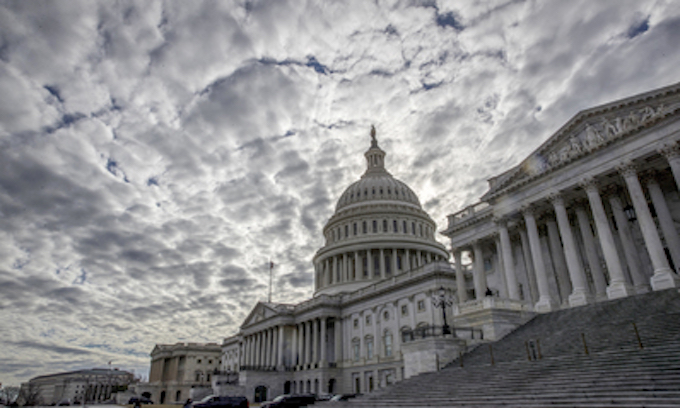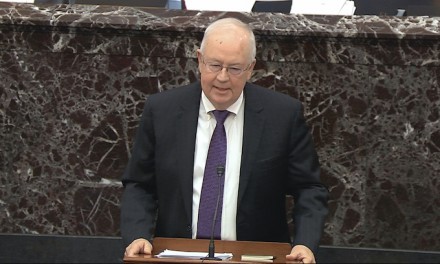The ranking member of the House Agriculture Committee and other Republican leaders have put the Environmental Protection Agency and Army Corps of Engineers on notice about trying to expand their regulatory authority over Waters of the U.S., known as WOTUS.
In a letter to EPA Administrator Michael Regan and Assistant Secretary of the Army for Civil Works Michael Conner, the lawmakers said the U.S. Constitution vests all legislative powers in Congress to ensure lawmaking is done by elected officials, not unaccountable bureaucrats.
The letter was written by several House Republicans, including Rep. Glenn “G.T.” Thompson, ranking member of the House Agriculture Committee.
“Given this administration’s track record, we are compelled to underscore the implications of West Virginia v. EPA and to remind you of the limitations on your authority,” the lawmakers said.
In West Virginia v. EPA, the U.S. Supreme Court in June rejected EPA’s attempt to exceed its statutory authority to require reductions in carbon dioxide emissions by power plants through its Clean Power Plan aimed at slowing climate change.
The lawmakers clarified their position, quoting the Supreme Court concurring opinion on the case: “The Constitution does not authorize agencies to use pen-and-phone regulations as substitutes for laws passed by the people’s representatives.”
The ruling, written by Chief Justice John Roberts, set the precedent that regulatory agencies must have direction from Congress to regulate “major questions” with significant or political implications.
“One of the most serious instances where a presidential administration has sought to usurp the authority granted to it by Congress is in the attempts to revise the definition of WOTUS under the Clean Water Act,” the lawmakers said.
For decades, rural communities, farmers, businesses and industries who rely on clean water have dealt with legal and regulatory uncertainty, compounded with confusing and overreaching federal regulations over what is considered a WOTUS and subject to federal regulations and permitting, they said.
“West Virginia v. EPA suggests that there is ‘reason to hesitate’ with regard to this claim of authority given the two criteria outlined by Chief Justice Roberts: the history and breadth of the authority asserted and the economic and political significance of that assertion,” they said.
“This assertion of authority by the Corps and EPA is one of great economic and political significance,” the lawmakers said.
In March, 200 House members urged the agencies to halt all current rulemaking actions surrounding the definition of WOTUS as the Supreme Court takes up a landmark WOTUS case, Sackett v. EPA.
“We reiterate that request and now further stress that the agencies must consider the decision of West Virginia v. EPA prior to issuing a rulemaking that would clearly surpass the agencies’ congressional authority to define WOTUS,” they said.
“As ranking members of several House committees, including those overseeing your agencies, we intend to exercise our robust investigative and legislative authority to not only forcefully reassert our Article I responsibilities, but to ensure the Biden administration does not continue to exceed congressional authorizations,” they said.
—-
This content is published through a licensing agreement with Acquire Media using its NewsEdge technology.



















A little late for warnings.
PLUS what good is it TO ‘warn’ them, when every time they HAVE Overstepped their authorities, all we see is USELESS “Congressional investigations”, and maybe someone resigns.. WE never see any ACTUAL Punishments.
Liberals liked it that way, laws could be passed without specific limits enacted into the law so they themselves could not be held directly responsible until those agencies entrusted with regulation created onorous interpretations of the rules like low land where storm runoff accumulated became protected marsh land or areas designated habitat for animals that have never been there and have no way of being introduced naturally. Agencies have brought it on themselves, could it be liberalism among the bureaubrats? Naw! Well maybe!
PLus what good is it to make laws, when there’s just so damn many loopholes, that the WRITERS KNOW OF, in them?!